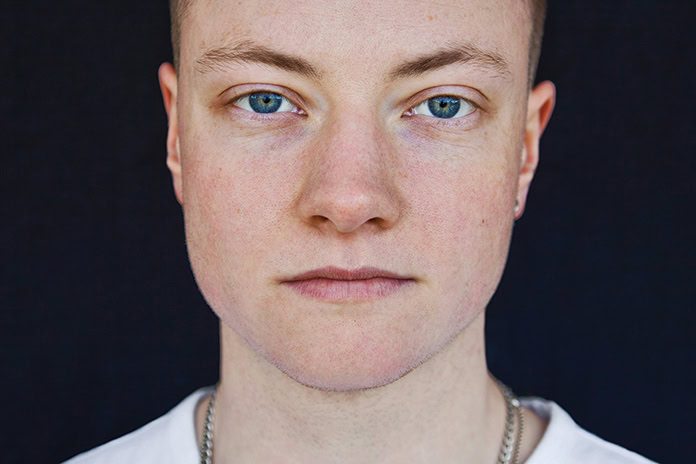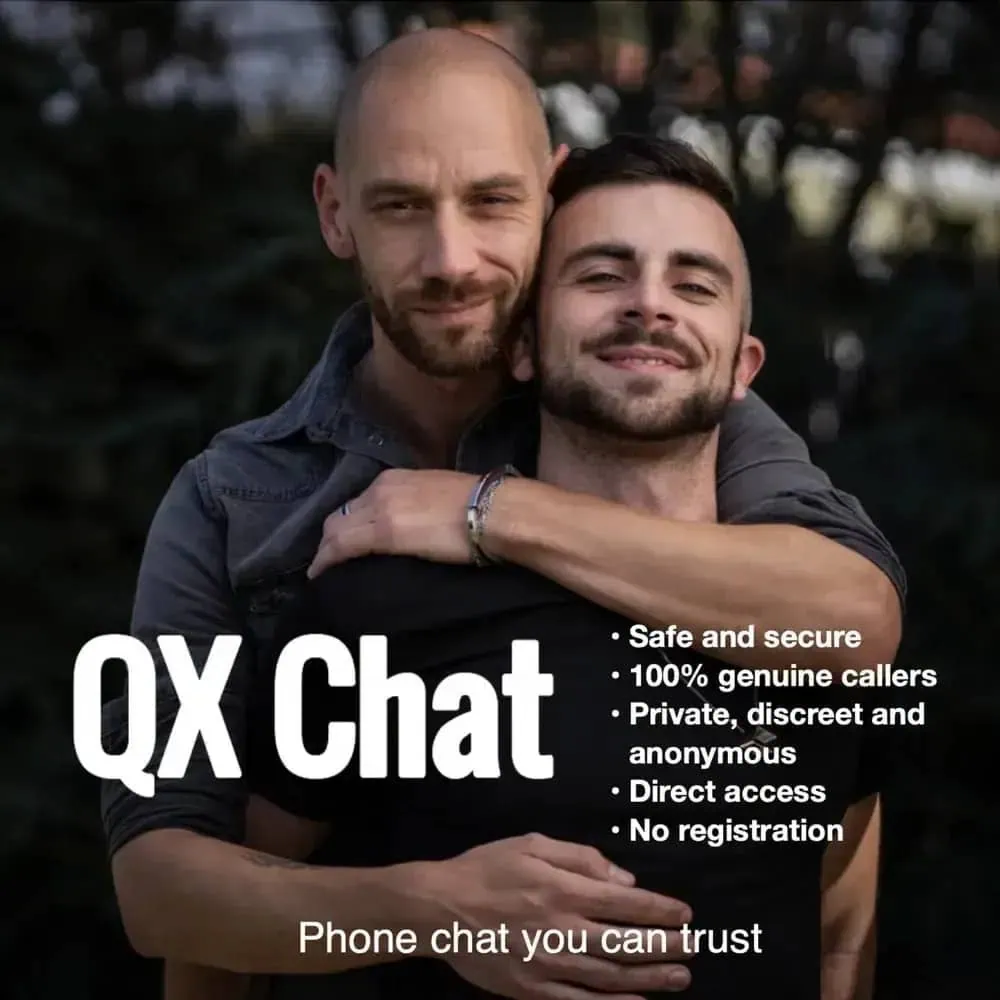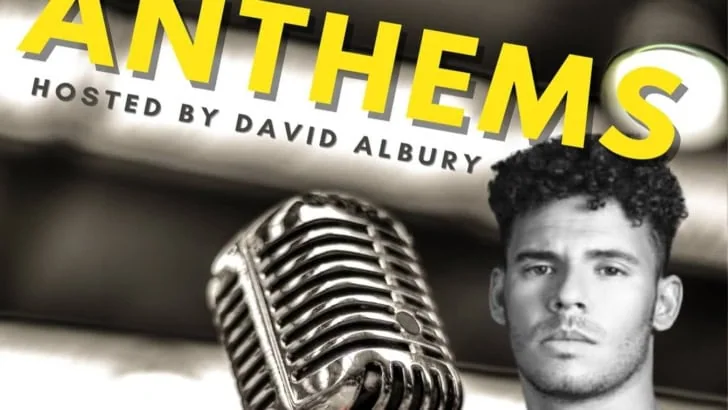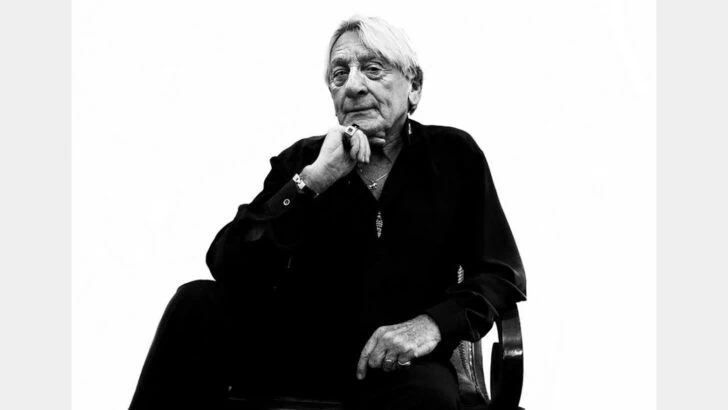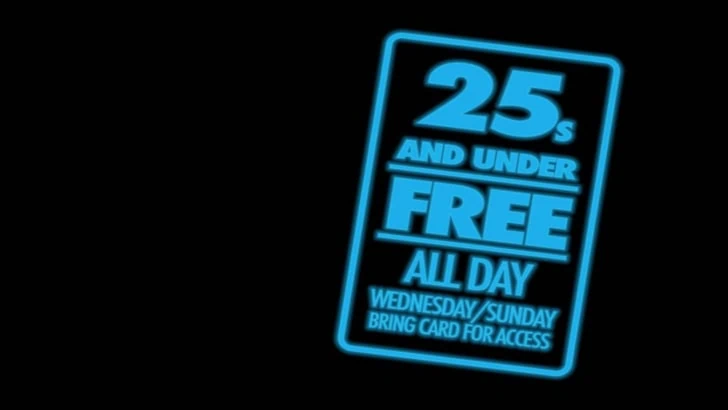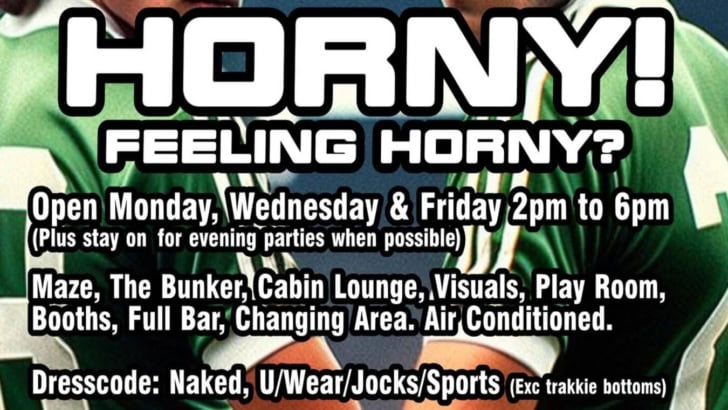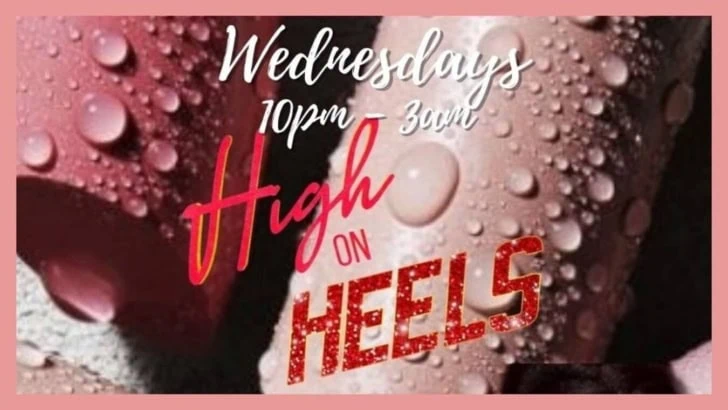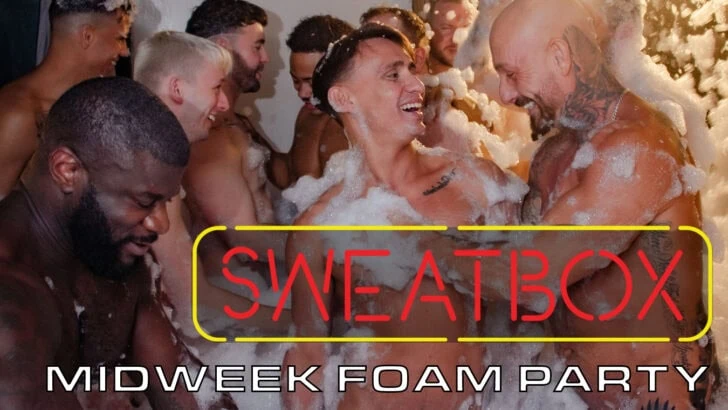We talk to trans actor Elijah W Harris and trans non-binary actor Lucy Jane Parkinson about why playing trans roles is important.
It seems that every month brings yet another headline outlining the outrage that a casting announcement of a cis actor in a trans role has fired up. From Eddie Redmayne in The Danish Girl to Jared Leto in Dallas Buyers Club, Hollywood has an obsession with telling trans stories but are still uncomfortable with employing trans actors to play them.
We decided to get to grips with this debate by talking to people who are in the middle of this discussion – trans actors. Rotterdam is a play following the self-realisation and transition of Adrian, whose girlfriend Alice has just come out to her parents as a lesbian. Playing the role of trans man Adrian is actor Lucy Jane Parkinson (L) who identifies as trans/non-binary. Playing the role of Alice’s cisgendered brother Josh is trans actor Elijah W Harris (E).
We sat down with the two to discuss the trans issue in 6theatre, and in life, and why it’s so important for trans folks (and not Scarlett Johansson) to tell their stories.
Lucy, you identify as non-binary, but you’re portraying a trans man. How do your personal experiences help you?
L. There’s a lot of common ground between myself and Adrian. The movement around dysphoria and coming to terms with who you are. Him being a trans man and me being non-binary, we’ve both arrived in the same sort of places, but leaving in opposite directions. I still see myself as floating around everywhere, not sitting anywhere on the spectrum; up or down on any given day. Whereas Adrian sees himself as male. He’s very much fast-footed and wants to get everything done whereas me, personally, I’m more yeah… maybe…? One day? It’s alright to be a bit of a mess inside, right?
God, we hope so. Has having Elijah on the cast helped you in any way?
L. Along the way there will be conversations we’ll probably have, but we’re just gluing together. You have to have some sensitivity in approaching that. Just because this is a trans character, doesn’t mean that’s necessarily Elijah’s experience. I do feel like if I need his support it’s there.
E. Also, there are a lot of people in the room who are able to inform a bigger conversation. I’ve shared some of my experiences of starting to take hormones, and one of the assistant directors is non-binary as well.

L. Absolutely. I’m glad that they didn’t cast Elijah as the trans man, instead having him play a cis character, which is more ahead of the curve. There’s been a large increase in call-outs looking for non-binary performers and trans performers to play trans roles.
E. You’re constantly asked to do that standardised transition narrative. Always the same thing – always quite dramatic with lots of hardship and trauma.
Do you feel an obligation to tell trans stories?
E. I don’t know if its an obligation to tell the stories, because the stories will get told, whether it’s by us or by a group of cis people. But I feel there is a need to be involved if I can be, because there are things that are truthful with my experience. To be visible as a trans actor – that’s important to me. We’re going to places, like where I grew up, and if I’d seen this growing up it’d be such a game changer. Knowing people in the cast were trans and non-binary would’ve been mind-blowing.
L. It’s a great opportunity for me to be able to bring personal experience into this role. If it’s an actor that has taken on the role who hasn’t had those experiences it makes their job a lot harder and it makes the director’s job a lot harder, which means the work can’t reach its full potential. I always wanted to be a performer, but never thought there’d be room for someone like me. We were told that these are the five types of casting we’re looking for and if you don’t fit them…sorry.
How DO you feel when you see these blockbusters starring cis actors as trans characters?
E. Not good. There’s always an argument for them, whether it’s star power or the best actor in the part, but how long ago did something like the Danish Girl come out? Years now. I feel like it’s at a point where it isn’t really good enough anymore. It’s also just not an excuse because there are higher profile trans actors, out there now. The star power thing doesn’t really chime. I saw the casting announcement for Berlin, I Love You recently and it had a guy out of the Star Wars films playing a trans woman. How is that the best decision? I think it’s shameful.
L. I think it’s a problem that if during the casting process, trans people aren’t seen or the research isn’t done, and they’ll think “Shall we just get Scarlett Johansson in?”. I understand that it is the acting, and it could go the other way and say “Lucy you can never play a cisgender role then because you’ve never experienced that.” But there should be more of an effort to cast someone who’s trans for a trans role. You can’t teach or explain what it feels like to be dysphoric. That’s a major element of the journey. If you’ve never experienced that, where do you pull that from?
Especially when these films are telling the story of transitioning. It’s never trans person fights aliens, it’s always trans person transitions.
E. Also if you’re going to cast a cis person, then maybe use a cis person whose gender matches that of the trans person. It’s important because using a cis male actor as a trans woman, for example, just perpetuates this gross idea that trans women are basically men underneath, which isn’t the case. It’s putting trans people at risk and perpetuating those stereotypes.
L. From an audience’s perspective, you’re not getting the real experience if you’re seeing someone cis playing that role. You’re not confronted with what a trans person’s body looks like. You’re blinkered to it. We have yet to see those types of bodies.
Not just Jared Leto in a headscarf and Lipstick.
E. PLEASE, not Jared Leto.
And then they get lauded from media outlets for playing trans roles – does that maybe piss you off more?
E. Yeah, it’s like an ego thing. “For my art.” Thinking they’ll definitely get nominated for something.
In the national debate on the trans issue and transness in the media, there seems to be a fixation on trans women. As a trans guy and a trans-non-binary person, why do you think that is?
E. It’s a weird one. I don’t know. I still don’t see myself represented in any of those spaces. There’s the occasional person, one episode with a trans guy in it. It’s just disappointing really.
L. Do you think it could be an assigned balanced thing? Someone who’s been assigned female at birth there’s still that play between the privilege of someone assigned male at birth. I notice that in drag as well. There are loads of drag queens out there, and as a Drag King I meet all those bitches in Drag Idol, and I won Drag Idol. Why am I still having to reach out to get a gig? There have been a lot more people put in the limelight that are trans women.
E. But also in the balance is the fact that trans women also get so much more shit. It’s a double-edged sword. I don’t know why that is. We’ve just got to represent, don’t we?
And way behind that discussion is the one around non-binary people.
L. It’s a tough one really, because being non-binary can get a bit of slack, in the same way, that bisexuality or pansexuality does. “You’ve just not made your mind up yet, have ya?”
E. Like it’s a gateway drug!
L. If somedays I’m not bound, I’m not seen as trans enough because I’m not taking T (testosterone) or I don’t pack (packing my boxers). Some people would automatically go “She or He?” and I just have to reply “yeah, no, no.”
How do you feel about someone like Sam Smith coming out as non-binary?
L. If that’s how he feels I’m glad that they’re going public with it. I think there will be people putting a fence up against that, trying to pin him in now. We’ve separated your gender and your identity now, it’s not okay to just pin a label on someone. Sam Smith knows Sam Smith. Who are we to question that, or police him?
So, Elijah – you’re playing a cis role. How do you feel taking it on as someone who’s not cis?
E. It doesn’t pass my mind that much, to be honest. I feel excited to be in the room, but when it comes to playing my part I’m not even vaguely worried about it. I need to remember to take my nail varnish off but that’s about it. I’m very male so it’s not like I need to look into that. Transitioning has highlighted those aspects of male-ness, like privilege, and how that runs so deep you don’t even notice it.
How do you feel navigating sexuality as trans people?
L. A fucking minefield.
E. When I first transitioned, there was a period of time when I over-compensated in performing masculinity. Growing up I never used the word ‘lesbian’ because I really hated it, but I was adamantly a gay female person. All my cultural reference points are lesbian, even now. The majority of my friendship group are lesbian couples, and that has informed me. I’m proud of that and it’s still a huge part of me. In terms of my sexuality now, it has shifted and grown and become something other. Me and my partner both identify as queer, which is partly a political choice as well as sexuality.
L. I don’t think there’s one sexuality that I haven’t been. It’s better not to worry about it because it is just a label, and I really had this sigh of relief when I heard about pansexuality. If I had to pick one I’d probably pick this one because it means I can just love and fuck whoever I like.
As a parting shot, do you think that we’re seeing a golden age of queer theatre?
E. I think we’re only at the beginning of that. There’s a bunch of theatre going on, clubs and cabaret nights and drag, but I feel like it’s slowly seeping into these bigger theatres. I just finished an all-queer cast production at The Bush Theatre, and even things like Jamie the Musical are being seen by more and more people and that’s the main thing.
L. There are such a plethora of stories to tell about queerness, now the gatekeepers have opened the doors to these stories being put on, and it’s being funded, and we’re being represented by agents, and we’re getting our feet in the door. If you’re not giving into that then you’re just re-staging a new type of Romeo and Juliet. Theatre needs to be a mirror so that we can understand who we are as people, and what identity means.
Rotterdam will be embarking on their UK Tour from April until June, kicking off at the Rose Theatre, Kingston Upon Thames` on the 4th of April.
Words by Ifan Llewelyn
